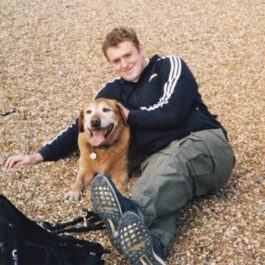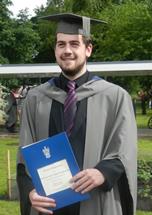Qualcomm
As a global leader in wireless technology, Qualcomm is creating products that are enhancing lives and changing the way we live. Qualcom
Our Scholarships
Placement Location
Cambridge
Type of Placements Offered
• Summer placements only
Restrictions/Notes
2024/25 Scholarships
We are not offering any new scholarships this year
Who we are and what we do

As a global leader in wireless technology, Qualcomm is creating products that are enhancing lives and changing the way we live. Our passionate technologists create innovative and integarted platforms, helping our customers turn great ideas into market-leading products.
Our energies in our UK Cambridge office are focused on three key areas:
- Voice & Music – delivering amazing audio with wireless audio technology platforms that provide exceptional sound and remove all the barriers to an immersive consumer listening experience;
- Bluetooth Smart – combining disruptive thinking, a hunger for innovation and powerful Bluetooth Low Energy platforms to simplify the complex challenge of developing breakthrough wireless products quickly;
- Automotive Infotainment – making the vehicle a better place by combining wireless connectivity, location and audio technology to create immersive in-car infortainment that delights drivers.
What you could be doing during your work placement
The role will be as Design Verification Engineer. Design Verification sits between RTL Design and product synthesis, layout and manufacture. We use EDA digital simulation engines such as Modelsim, Incisive and VCS to verify the RTL design virtually before we commit to manufacture. This means we get to analyse the design, write self-checking tests using both System Verilog UVM and embedded C, and to run and debug those tests using waveforms and logfiles. We spend a lot of time talking to the designers, analogue team and the software teams to make sure we cover all of the required functions of the SoC so we get a right-first-time product. In your placement you will learn System Verilog, Python, embedded C, EDA simulation tools, test coding, and debug.
What you will do:
- Read design documents and analyse them for testability
- Develop a test plan
- Write tests in System Verilog
- Write tests in embedded C
- Debug the tests and report bugs to the relevant teams
Meet one of our Scholars

Name: William
Sponsor: Qualcomm Technologies
University: University of Nottingham
Degree Course: MEng Electrical and Electronic Engineering
Why I chose Qualcomm
The field of Electronics has allowed humans to achieve unbelievable feats; whether it’s connecting people across the world, or creating real world Artificial Intelligence. I knew early on that I wanted to be involved in it, helping to advance the field and solve the problems of the future. I decided to do it in an engineering capacity because solving engineering problems requires being analytical, as well as being creative, which I find extremely rewarding and an exciting career prospect.
Why did you want a scholarship with Qualcomm?
As one of the largest semiconductor chip designers in the world, and a pioneer of wireless communications, Qualcomm was an ideal internship destination for me. I knew working for an industry leader like Qualcomm would be extremely insightful, helping me to become not only a better, more knowledgeable engineer, but also to help me understand how big companies at the bleeding edge operate. And I was not disappointed – the experience I gained was invaluable from the work and my colleagues and it has really encouraged to pursue a career in the field.
What type of work have you been involved with during your placement?
I spent my internship working in the Chip implementation team at Qualcomm’s Cambridge office, predominantly on synthesis and the physical design of Qualcomm’s industry-leading mixed-signal IP. I gained a lot of experience using Linux, TCL and Perl as well as a much better understanding of the chip design process as a whole and semiconductors, in general.
What are your hobbies and interests?
I’m a keen sportsman, and I enjoy watching or playing almost any sport, Rugby and Cricket in particular. I also enjoy spending time with my friends, family and, most importantly, my three dogs! In my spare time I also like to read, game and play guitar.
Meet one of our Engineers

Name: Matthew
Job Title: Graduate Engineer R&D Lab
How I ended up studying Electronics
I was always interested in computers growing up and building them from scratch and wanting to know how they worked; I went to College to further this computer interest, but was disappointed that it was related more to the use of computers. Whilst applying through UCAS I stumbled onto Electronics Engineering which instantly hit my interests. I did a foundation year at University of York which consisted of doing GCSE, AS and A Level Maths, Physics and Electronics. It was tough, but I made it through and got a place on to my undergraduate course “BEng in Electronics and Computer Engineering”. I finished my undergraduate with a 2:1, during my 2nd year I did a course on Microprocessors where we learnt about VHDL, this drove my interest to stay to do a Masters in “Digital Systems Engineering” where I learnt how to build a MP3 player on a FPGA and we designed and built the boards ourselves.
Why I chose Qualcomm
After university I knew I had a strong interest in Hardware Engineering and Qualcomm sounded amazing. At interview everyone I met was very reassuring and welcoming to me and this settled my nerves. The job I was applying for was a Graduate role in the R&D Lab group where they produce development hardware for the projects. This sounded very interesting as I had done a bit of PCB work during my Masters and Final year of my BEng and wanted to learn more in this area.
When I am not working
As I moved to Cambridge from Leeds, I am still getting to know the area, but I love to investigate the city (Punting is fun!) and cities around it. London is less than an hour away and is great for a weekend away. I also like to go to the GYM and have helped out on a Bluetooth finger print scanner project.